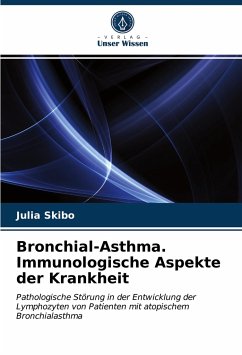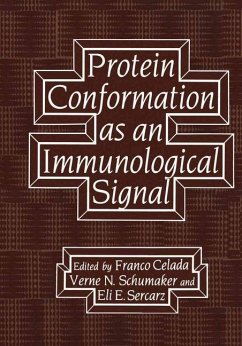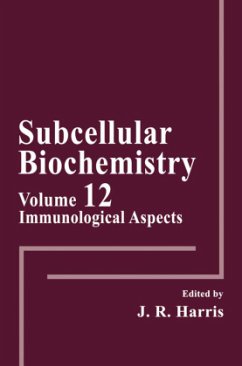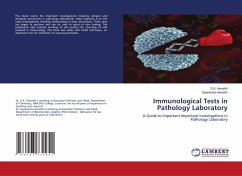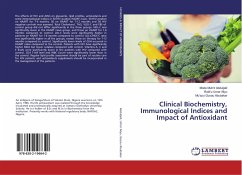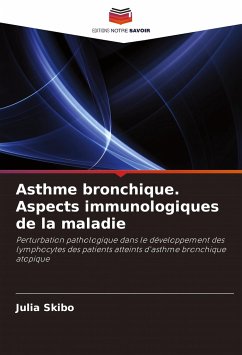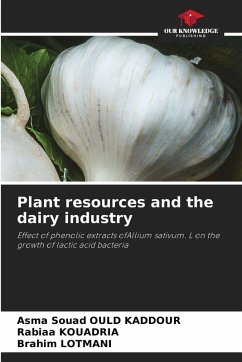
Bronchial Asthma. Immunological aspects of the disease
Pathological disorder in the development of lymphocytes of patients with atopic bronchial asthma
Versandkostenfrei!
Versandfertig in 6-10 Tagen
32,99 €
inkl. MwSt.

PAYBACK Punkte
16 °P sammeln!
Manifestations of allergic diseases are manifold and depend largely not only on the cause of the allergy, but also on the state of the immune and other systems of the human body. Modern concept of Bronchial Asthma pathogenesis presents it as an inflammatory process, characterized by increased content of activated cells (eosinophils, mast cells, neutrophils, lymphocytes, etc.) in the mucosa of the bronchial tree. The body's response to antigenic exposure is determined by the immune system, the main link of which involves the interaction of 3 types of cells: T- and B-lymphocytes and macrophages....
Manifestations of allergic diseases are manifold and depend largely not only on the cause of the allergy, but also on the state of the immune and other systems of the human body. Modern concept of Bronchial Asthma pathogenesis presents it as an inflammatory process, characterized by increased content of activated cells (eosinophils, mast cells, neutrophils, lymphocytes, etc.) in the mucosa of the bronchial tree. The body's response to antigenic exposure is determined by the immune system, the main link of which involves the interaction of 3 types of cells: T- and B-lymphocytes and macrophages. Regulatory T-cells can prevent the development of allergic diseases at different pathogenetic stages, including sensitization, progression and persistence of allergic inflammation. However, their functional activity may be deficient in adults and children with bronchial asthma, depending on the dose and type of allergen. The reasons for the defect of regulatory T-lymphocytes in allergic patients remain poorly understood at present and require additional research.



